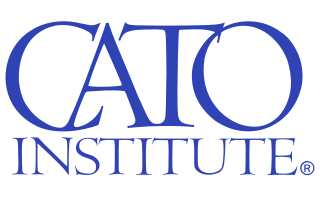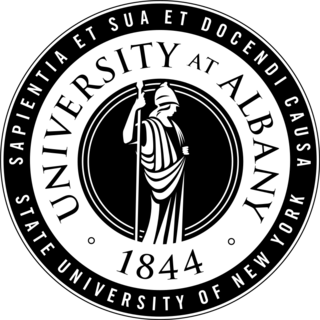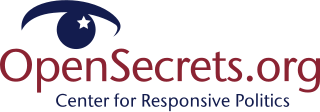The Washington State Institute for Public Policy, a creation of the state legislature of the U.S. state of Washington, researches public policy issues of interest to the legislature and state agencies, in association with The Evergreen State College. It was created in 1983 and currently supports public access to various reports and projects occurring in the state. Many of these reports are created to provide data for policy makers of the state.
As of February 2013, the board of directors consists of the following 16 members. Their responsibilities include appointing institute directors, providing reviews, and performing overarching oversight for all institute projects. [1]
| Name | Position/Duty |
|---|---|
| Karen Fraser | Senator |
| Mike Carrell | Senator |
| Jeanne Kohl-Welles | Senator |
| Mark Schoesler | Senator |
| Ken Conte | Director, Office of Program Research |
| Richard Rodger | Director, Senate Committee Services |
| David Schumacher | Director, Office of Financial Management |
| Cary Condotta | Representative |
| Robert Rosenman | Professor/Associate Director, Washington State University |
| Sandra O. Archibald | Dean/Professor of Public Affairs, University of Washington |
| Thomas L. Purce | President, The Evergreen State College |
| Unoccupied | Governor Appointee |
| Unoccupied | House Democratic |
| Unoccupied | House Democratic |
| Unoccupied | House Republican |
The Washington State Institute for Public Policy has a majority of research on the following topics:

A think tank, or policy institute, is a research institute that performs research and advocacy concerning topics such as social policy, political strategy, economics, military, technology, and culture. Most think tanks are non-governmental organizations, but some are semi-autonomous agencies within government, and some are associated with particular political parties, businesses or the military. Think tanks are often funded by individual donations, with many also accepting government grants.

The National Institutes of Health, commonly referred to as NIH, is the primary agency of the United States government responsible for biomedical and public health research. It was founded in the late 1880s and is now part of the United States Department of Health and Human Services. Many NIH facilities are located in Bethesda, Maryland, and other nearby suburbs of the Washington metropolitan area, with other primary facilities in the Research Triangle Park in North Carolina and smaller satellite facilities located around the United States. The NIH conducts its own scientific research through the NIH Intramural Research Program (IRP) and provides major biomedical research funding to non-NIH research facilities through its Extramural Research Program.

The American Enterprise Institute for Public Policy Research, known simply as the American Enterprise Institute (AEI), is a center-right think tank based in Washington, D.C., that researches government, politics, economics, and social welfare. AEI is an independent nonprofit organization supported primarily by contributions from foundations, corporations, and individuals.

The Cato Institute is an American libertarian think tank headquartered in Washington, D.C. It was founded in 1977 by Ed Crane, Murray Rothbard, and Charles Koch, chairman of the board and chief executive officer of Koch Industries. Cato was established to focus on public advocacy, media exposure, and societal influence.

The George Washington University is a private federally-chartered research university in Washington, D.C. Originally named Columbian College, it was chartered in 1821 by the United States Congress and is the first university founded under Washington D.C.'s jurisdiction. It is one of nation's six federally chartered universities.
The Heritage Foundation, sometimes referred to simply as "Heritage", is an activist American conservative think tank based in Washington, D.C. Founded in 1973, it took a leading role in the conservative movement in the 1980s during the presidency of Ronald Reagan, whose policies were taken from Heritage Foundation studies, including its Mandate for Leadership.

The State University of New York at Albany, commonly referred to as the University at Albany, UAlbany or SUNY Albany, is a public research university with campuses in Albany, Rensselaer, and Guilderland, New York. Founded in 1844, it is one of four "university centers" of the State University of New York (SUNY) system.

OpenSecrets is a nonprofit organization based in Washington, D.C. that tracks and publishes data on campaign finance and lobbying, including a revolving door database which documents the individuals who have worked in both the public sector and lobbying firms and may have conflicts of interest. It was created from the 2021 merger of the Center for Responsive Politics (CRP) and the National Institute on Money in Politics (NIMP), both of which were organizations that tracked data on campaign finance in the United States and advocated for stricter regulation and disclosure of political donations.

The Pew Charitable Trusts is an independent non-profit, non-governmental organization (NGO), founded in 1948.

Cascade Policy Institute is a non-profit and non-partisan American libertarian think tank based in Oregon that focuses on state and local issues. Founded in 1991, the institute advocates limited government in cost and size, and promotes privatization and other free market alternatives to government services. Cascade is a member of the State Policy Network, a network of conservative and libertarian think tanks in the United States and Canada.

Complete streets is a transportation policy and design approach that requires streets to be planned, designed, operated and maintained to enable safe, convenient and comfortable travel and access for users of all ages and abilities regardless of their mode of transportation. Complete Streets allow for safe travel by those walking, cycling, driving automobiles, riding public transportation, or delivering goods.
Washington State University Spokane, branded as WSU Health Sciences Spokane, is a campus of Washington State University located in Spokane, Washington. It was established in 1989 and, as of 2010, is designated as the university's health science campus. The urban campus is housed on the 48-acre (19 ha) multi-institutional WSU Health Sciences Spokane campus, formerly known as the Riverpoint Campus, in Spokane's University District just east of Downtown Spokane.

Douglas William Elmendorf is an American economist who is the dean and Don K. Price Professor of Public Policy at the John F. Kennedy School of Government. He previously served as the Director of the Congressional Budget Office (CBO) from 2009 to 2015. He was a Brookings Institution senior fellow from 2007 to 2009, and briefly in 2015 following his time at the CBO, and was a director of the Hamilton Project at Brookings.

The RAND Corporation is an American nonprofit global policy think tank, research institute, and public sector consulting firm. RAND Corporation engages in research and development (R&D) in a number of fields and industries. Since the 1950s, RAND research has helped inform United States policy decisions on a wide variety of issues, including the space race, the Vietnam War, the U.S.-Soviet nuclear arms confrontation, the creation of the Great Society social welfare programs, and national health care.
PolicyLink is a national research and action institute dedicated to advancing economic and social equity. It focuses on policies affecting low-income communities and communities of color. It is a nonprofit organization based in Oakland, California, with branch offices in New York City; Washington, DC; and Los Angeles.

The Milken Institute School of Public Health is the school of public health of the George Washington University, in Washington, DC. U.S. News & World Report University Rankings ranks the Milken SPH as the 11th best public health graduate program in the United States.

The Institute for Health Metrics and Evaluation (IHME) is a national and international public health agency and research institute working in the area of global health statistics and impact evaluation, located at the University of Washington in Seattle. IHME is headed by Christopher J.L. Murray, a physician, health economist, and global health researcher, and professor at the University of Washington Department of Global Health, which is part of the School of Medicine. IHME conducts research and trains scientists, policymakers, and the public in health metrics concepts, methods, and tools. Its mission includes judging the effectiveness and efficacy of health initiatives and national health systems. IHME also trains students at the post-baccalaureate and post-graduate levels.
AcademyHealth is a nonpartisan, nonprofit professional organization dedicated to advancing the fields of health services research and health policy. It is a professional organization for health services researchers, health policy analysts, and health practitioners, and it is a nonpartisan source for health research and policy. The organization was founded in 2000, in a merger between the Alpha Center and the Association for Health Services Research). In 2008, the organization had approximately 4000 health services researcher members.
The Manhattan Institute for Policy Research is an American conservative think tank focused on domestic policy and urban affairs. The institute's focus covers a wide variety of issues including healthcare, higher education, public housing, prisoner reentry, and policing. It was established in Manhattan in 1978 by Antony Fisher and William J. Casey.

The UCLA Institute for Research on Labor and Employment (IRLE) is an interdisciplinary research unit within the College of Letters & Science, Division of Social Science, dedicated to research, teaching, and discussion of labor and employment issues. It was founded in 1945 as the UCLA Institute of Industrial Relations. It is one of the two research programs in the University of California system along with the UC Berkeley Institute for Research on Labor and Employment. The IRLE consists of four bodies: the IRLE Academic Unit, UCLA Labor Center, Human Resources Round Table, and the Labor Occupational Safety and Health Program.